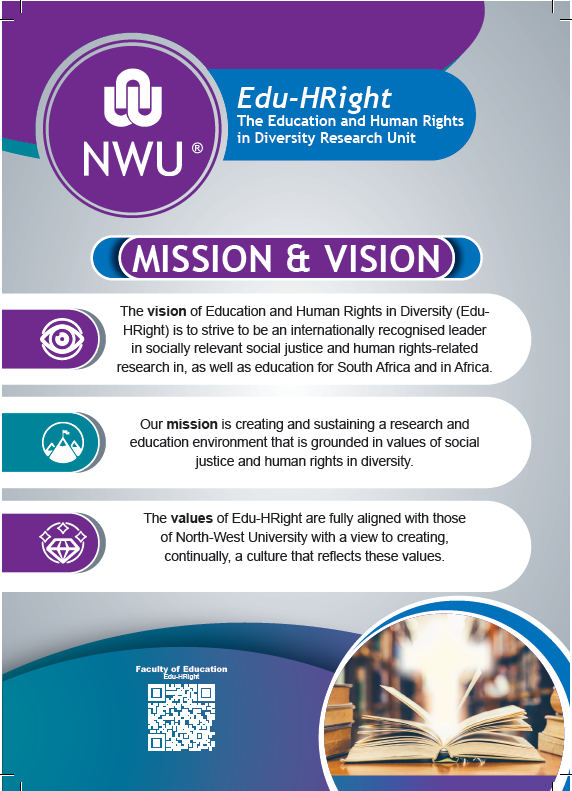The Education and Human Rights in Diversity Research Unit (Edu-HRight) was established in 2013 in the Faculty of Education Sciences of the NWU, Potchefstroom Campus. Edu-HRight has a number of special researchers contracted for research in the unit: visiting professors, post-doc fellows, research assistants and international collaborators. Members of the unit play their part in national and international associations and are engaged in research fellowships at international institutions, and several of the subareas and individual members in the unit are active in research endeavours on national and international level.

